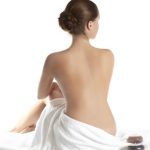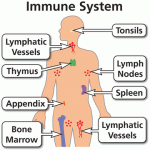Wanted to know what are the common skin problems for a youthful and healthier skin? If so, please read on.
Allergies: If you experienced that your complexion seems itchy, chapped or very rough, you may having an allergy. This is often a hypersensitivity reaction to a particular allergen such as certain foods or cosmetics and the symptoms can vary greatly in intensity. A doctor or a dermatologist can usually help you track down the cause. If cosmetics are the problem, you can minimize the irritations by using hypo-allergenic creams and make-up.
Before you decide to use a product, a simple patch test should be performed. This is how you could do the test, dab the product on the inside of your wrist and wait for 24 hours. If reddening or swelling occurs, you are probably allergic to an ingredient in the product and should stop using it.
 Cosmetic ingredients that can damage the skin can either be the primary irritants or the sensitizers. Usually the primary irritants disturb your skin soon after application; hence they can be easily identified and avoided. But for the allergic reaction to a sensitizer it will take longer to develop — it can be after weeks or months of trouble-free using a product.
Cosmetic ingredients that can damage the skin can either be the primary irritants or the sensitizers. Usually the primary irritants disturb your skin soon after application; hence they can be easily identified and avoided. But for the allergic reaction to a sensitizer it will take longer to develop — it can be after weeks or months of trouble-free using a product.
Blemishes: Minor skin problems can turn into more serious ones if they are not dealt with properly. If blemishes such as blackheads and spots persist in spite of careful skin care and good health, you should seek doctor’s advice. Blackheads are generally associated with oily skin and are caused by congestion below the skin’s surface. Sebum in the skin becomes irritated by bacteria and a blockage occurs; when the head of the blockage meets the air it turns black, giving the blemishes their characteristic appearance.
To remove blackheads, you need to soften them with hot compresses and then ease them out with a comedo extractor. A comedo extractor is a spoon-shaped instrument with a hole in the bowl through which you ease the blackhead. If the number of blackheads increases, this may be a sign that the oily skin is not getting clean enough and oil is building up to clog pores. Cleaning your face more often may help to prevent this build up although cleansing alone will not remove the blackheads – preventing and removing blackheads are two entirely different skin care processes.
Acne: This is a common complaint, especially among teenagers. How it happened is attributed to the disturbance in the activity of the sebaceous glands — glands in the deeper layers of the skin which secrete fatty matter. Although the exact cause of the disturbance is not known, both hormone imbalance and local bacterial infections seem to play a part in its development. Acne could also be due to hereditary. Studies have shown that emotional stress, fatigue, nervous tension, improper facial hygiene and certain foods, drugs and cosmetics are often contributing the flare-ups of acne.
Although you can’t prevent acne to happen but you definitely can control it. Firstly, cleanse your face with a medicated soap, sudsy liquid or gel. Secondly, using your fingertips, gently massage and lather all over your face for a few minutes. Thirdly, rinse with hot water, then with cool water. Do this three times a day and more if so desired.
If you see a pimple starting, you should apply antiseptic lotion or acne medication — in the form of a flesh-tinted cream or invisible gel after your facial cleansing. Acne medication can be applied at bedtime as well as under make-up unless otherwise advise.
Other skin care routine shall include: i) Drink plenty of water and try not to become constipated and; ii) Wear an off-the-face hair-do to keep your scalp oils and dandruff from drifting onto your face, and to use a medicated shampoo often.
If your skin problem is worsening, it is time that you visit a dermatologist.








